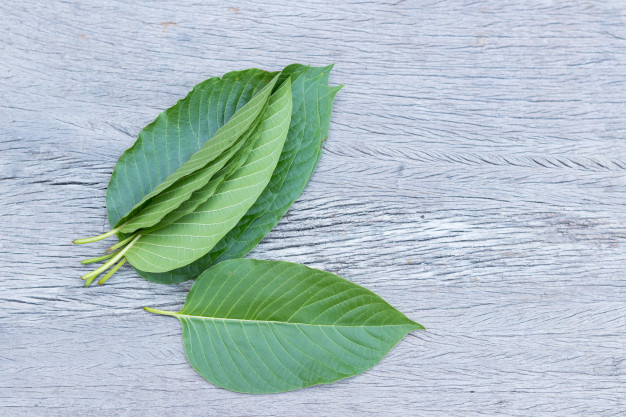Kratom is a Mitragyna plant native to Southeast Asia, particularly Malaysia and Thailand. It has been used in traditional medicine for centuries due to its sedative and analgesic effects. ketamine therapist bennington vt Recently, it has gained popularity at an international level due to its opioid-like effects and as a replacement for prescription opioids in the management of chronic pain.
Kratom has also been known to be used by many individuals for its nootropic effects. For instance, it improves mood since it acts on the same receptor that antidepressant drugs do. Also, people take canada kratom with medicinal properties to enhance concentration.
But with all its apparent benefits, can Kratom be considered a depression aid? Here’s what you need to know.
What is Kratom?
Kratom is a herbal extract from an evergreen tree called Mitragyna speciosa. At low doses, it produces stimulant effects comparable to caffeine and, at high doses, has sedative and analgesic effects similar to opioids. However, Kratom doesn’t produce severe withdrawal symptoms like those from opioids, and there’s no need for a prescription.
Kratom produces both stimulant and sedative effects depending on the dose taken, making it a popular alternative medicine for pain relief. It’s also used to aid opiate withdrawal, allowing people to avoid the addiction associated with painkillers. Kratom leaves are often chewed in Southeast Asia or occasionally consumed as a tea. Kratom can also be taken as:
- Capsules
- Extract
- Powder
- Gum
What Are Kratom’s Benefits?
Kratom has much to offer. Its powerful analgesic properties make it an effective pain reliever for chronic pain sufferers, like people living with arthritis and cancer patients. Also, it may help curb opioid addiction when in the process of weaning yourself off opioids. Kratom may also be used as a nootropic that boosts brain performance.
The most immediate benefit of Kratom is that it’s available over the counter at smoke shops and online stores, making access to it quick and easy.
Can Kratom Be Considered As A Depression Aid?
According to the American Psychological Association, depression is a mental disorder that may not be temporary. Depression has wide-ranging adverse effects on sufferers’ emotional, physical and social well-being, with an estimated 21.0 million adults in the United States experiencing at least one major depressive episode. Symptoms include:
- Hopelessness
- Fatigue
- Lack of self-worth or self-confidence
- Sleeping too much or insomnia
- Loss of interest in activities previously enjoyed
- Anxiety and irritability
- Overeating or appetite loss
Kratom’s active ingredient mitragynine may influence serotonin and norepinephrine levels in the brain, explaining its antidepressant properties. This means that they may promote euphoria and relaxation, similar to morphine.
Side Effects and Uses
Although Kratom is used for many conditions, including pain, depression, and withdrawal symptoms from opioids, the FDA hasn’t recognized it as a treatment for these ailments and has noted that it may put users at addiction risk. According to the American Addiction Centers, there’s a high risk of dependence and addiction to Kratom. Symptoms of addiction include:
- Social withdrawal
- Extreme mood swings
- Spending a lot of time alone in isolation
- Continued use despite negative consequences associated with Kratom
- Change in sleeping and eating habits
People may also try overdosing on Kratom to achieve a more potent high. This could result in tremors and seizures, coma, or even death.
On the other hand, Kratom is often used for depression because it may produce sedative effects at high doses and stimulant effects at low doses. This may help those suffering from depression experience an improved mood.
It’s worth noting that the FDA does not support the use of Kratom, and for a good reason. Since this plant hasn’t been proven to be safe or effective, consumers are urged to steer clear of kratom supplements to avoid putting themselves at risk of toxicity and severe health problems.
Since depression is a condition that can have severe consequences if left untreated, it’s best to seek professional help for its treatment.
Alternative Depression Treatment
Individuals struggling with depression may want to consider more conventional therapies like prescription medications like selective serotonin reuptake inhibitors or psychotherapy.
Other self-care steps can help sufferers of depression. They include:
- Exercising regularly
- Eating healthy
- Getting 7-8 hours of sleep each night
- Avoiding caffeine, alcohol, and other substances that cause addiction or aggravate symptoms of depression
- Taking part in hobbies that are relaxing and enjoyable, such as reading or painting
- Practicing mindfulness meditation to destress, relax and cope with stress
Bottom Line
Kratom may effectively treat depression because of its analgesic, sedative, and euphoric properties.
While Kratom may help alleviate specific symptoms, it may also cause side effects. In some cases, the risks may outweigh the benefits.
Take Kratom with caution if you decide to do so. If you are unsure how it will affect you, start with a small dose and monitor its effects. You may want to tell someone you trust to be your accountability partner.
Remember that Kratom can interact with other substances, such as medications and alcohol. However, before using Kratom, it’s best to seek professional advice from a doctor, pharmacist, or mental health specialist familiar with its benefits and side effects.


